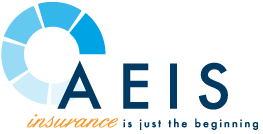The Pros and Cons of PEO for Small Businesses
Written by: Ron Bland, GBDS

What is a PEO and How Does PEO HR Outsourcing Work?
Also commonly referred to as a Professional Employer Organization(PEO), a PEO is a type of third-party organization that partners with a business to handle all of its various human resource-related functions through a co-employment relationship.
HR is an essential part of any business, regardless of the industry you're operating in. Still, some companies may be new to the point where they just don't have the resources needed to handle everything properly on their own. In that scenario, a PEO would come in and assume all responsibilities related to things like payroll, benefits administration, compliance with employment laws and more - all so that organizational leaders can get back to their core competencies of actually running the business in question.
Benefits of Using a PEO: How HR Outsourcing Can Boost Your Business
For business owners, open enrollment is a perfect opportunity to reassess their current offerings in a way they may not have had the chance to do for quite some time.
Work with your broker to look at your current plan's benefits and make sure they still align with the overall goals of your workers. If you identify any gaps, compare them with other plans to see if you can fill them. Do the same in terms of premiums and even out-of-pocket costs.
Essentially, you need to make sure you still understand the needs of your workers and that your healthcare offerings are still meeting them. If they're not, open enrollment preparation becomes comparing plans until you find the right one to accomplish your goals within the context of this year.
Supporting Your Employees in the Open Enrollment Period
Streamlined HR Processes and Administration
By far, the biggest benefit of
using a PEO is one of streamlined HR processes and administration. It's an important point to make within the context of pros and cons of a PEO. Think about the sheer volume of time that goes with recruiting new employees, onboarding them, managing employee records, etc. A PEO can streamline all of these tasks from your current in-house HR employee's plate, freeing up their valuable time to focus on more important matters.
PEO Payroll Services: Simplifying Employee Payments
A PEO can step in and handle not only the processing of employee paychecks but also deductions and tax withholding for employees, and tax filing and tax payments for the employer, and more. PEOs also help employers with payroll reporting and payroll record-keeping. Not only does this make things dramatically more straightforward, it also eliminates the risk that the business will run into any compliance or regulatory issues, too. It’s highly recommended to work with a PEO that has
IRS/CPEO (Certified Professional Employer Organizations) certification and
ESAC (Employer Services Assurance Corporation) accreditation
to significantly lower the financial risk and liability of the business.
Access to Competitive Benefits: PEO Benefits Administration
These days, benefits are a huge factor that someone looks at when deciding where to work - almost more so than even salary. Just because an organization is small doesn't mean a company shouldn't work to offer a top tier benefits package and PEO benefits administration can make that possible.
Partnering with a PEO gives businesses access to a wider range of high-quality, competitive benefits that they might not be able to offer on their own. Since PEOs pool employees from multiple companies, they can negotiate better rates for health insurance, dental and vision coverage, and other employee perks.

Risk Management and Compliance: A PEO's Role
The world of compliance is ever-changing, and it's up to leaders and HR professionals at an organization to keep up. The issue is that their attention is being constantly pulled in different directions, to the point where it's easy to miss something. That doesn't make the consequences of doing so any less severe.
A PEO can make sure that not only are all risks that a business might be exposed to adequately addressed, but all compliance matters are handled as well. You're getting access to a team of people with expertise in this particular area, all so that you can spend less time worrying about accidentally violating compliance and focus more of your attention on those daily tasks that actually need you and generate a profit for your business.
Cost Savings: How a PEO Can Save Your Business Money
Because PEOs tend to work with many organizations at once, they have a lot of pull when it comes to pricing. They can leverage that large pool of clients to the benefit of each of them - giving smaller organizations access to the type of large group pricing and benefits that a smaller business would be unable to achieve on its own.
We're here to help.
Contact us today.
Disadvantages of Using a PEO: What to Consider Before Outsourcing HR

Balancing Control with PEO Support
When considering the pros and cons of PEO relationships, it's always important to pay just as much attention to the cons. The operative word in the business/PEO relationship is "support." A PEO is supposed to step in and offer assistance with all your human resources-related needs - because of that, you'll always be giving up a certain level of control to the company you've chosen to work with. Exactly how much control will depend on your partner, as well as your own tolerance for that sort of thing.
Evaluating the Cost-Effectiveness of a PEO
Using a PEO isn't free - you'll pay for their services based on the amount of value they provide. Because of that, you need to make sure that you're always aware of just how much value that truly is. You may approach a situation where it legitimately "costs more" on paper to use a PEO than it does to simply handle all these needs yourself. Additionally, sometimes the admin costs may outweigh the benefit savings costs, so you need to look at the PEO as a whole.
Ensuring a Good Fit with Your Business Needs
One of the most important things about all this to keep in mind is that not all PEOs are created equally. All PEOs won't offer the same set of services, so you can't just pick one at random and assume that they'll be able to accomplish what you're looking for.
Make sure that you put in the time to find a credible PEO that has industry-specific experience and that understands your company culture. Only then will you be able to choose a partner that is a good fit for what you're trying to accomplish.
Addressing Employee Concerns During the Transition
Changing over to a PEO will bring about a certain level of disruption to your employees, particularly when it comes to benefits, payroll, and who they can turn to when they need HR support. Throughout this time, communication is key. Keep everyone in the loop and address any concerns that people may have as thoroughly as you can.
Is a PEO the Right HR Outsourcing Solution for Your Business?
Again - not every organization has the same set of needs. For smaller organizations in particular, streamlining HR and getting access to a more competitive (and competitively priced) array of benefits could be a game-changer. For others that are larger and have staff whose roles are dedicated solely to the functions the PEO is meant to address, the benefits may be more negligible.
Make a list of the things that you can't do right now that you need to be able to do. Then, see how many of them working with a PEO can help with. Only then will you be able to act confidently, knowing that you're making the best decision possible for you and your people.
Is a PEO the Right HR Outsourcing Solution for Your Business?
At AEIS, we have a unique process in which we can simultaneously evaluate numerous PEO’s for your organization and can show you the benefits and differences between the various options. We take the time to learn as much about your business, your employees, and your culture as possible - all so that we can help you accomplish your goals in the most efficient ways.
To find out more information about PEO pros and cons, or to get answers to
any other specific questions you might have, please don't delay -
contact the AEIS team today.
About The Author:
Ronald L. Bland
President
Ron, a top insurance professional in the Bay Area since 1985, excels in creating cost-effective, comprehensive plans for business owners. His achievements include top-of-the-table status in the Million Dollar Round Table and speaking at the 2021 Top of the Table Conference. A Bay Area native, Ron graduated with honors from San Francisco State University and lives in San Mateo with his wife, Elaina, and their two children.



